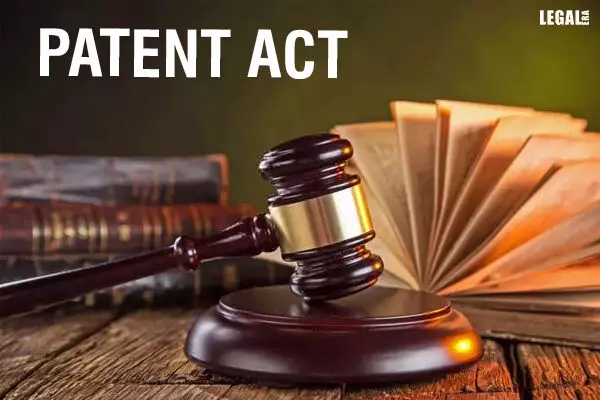- Home
- News
- Articles+
- Aerospace
- Artificial Intelligence
- Agriculture
- Alternate Dispute Resolution
- Arbitration & Mediation
- Banking and Finance
- Bankruptcy
- Book Review
- Bribery & Corruption
- Commercial Litigation
- Competition Law
- Conference Reports
- Consumer Products
- Contract
- Corporate Governance
- Corporate Law
- Covid-19
- Cryptocurrency
- Cybersecurity
- Data Protection
- Defence
- Digital Economy
- E-commerce
- Employment Law
- Energy and Natural Resources
- Entertainment and Sports Law
- Environmental Law
- Environmental, Social, and Governance
- Foreign Direct Investment
- Food and Beverage
- Gaming
- Health Care
- IBC Diaries
- In Focus
- Inclusion & Diversity
- Insurance Law
- Intellectual Property
- International Law
- IP & Tech Era
- Know the Law
- Labour Laws
- Law & Policy and Regulation
- Litigation
- Litigation Funding
- Manufacturing
- Mergers & Acquisitions
- NFTs
- Privacy
- Private Equity
- Project Finance
- Real Estate
- Risk and Compliance
- Student Corner
- Take On Board
- Tax
- Technology Media and Telecom
- Tributes
- Viewpoint
- Zoom In
- Law Firms
- In-House
- Rankings
- E-Magazine
- Legal Era TV
- Events
- Middle East
- Africa
- News
- Articles
- Aerospace
- Artificial Intelligence
- Agriculture
- Alternate Dispute Resolution
- Arbitration & Mediation
- Banking and Finance
- Bankruptcy
- Book Review
- Bribery & Corruption
- Commercial Litigation
- Competition Law
- Conference Reports
- Consumer Products
- Contract
- Corporate Governance
- Corporate Law
- Covid-19
- Cryptocurrency
- Cybersecurity
- Data Protection
- Defence
- Digital Economy
- E-commerce
- Employment Law
- Energy and Natural Resources
- Entertainment and Sports Law
- Environmental Law
- Environmental, Social, and Governance
- Foreign Direct Investment
- Food and Beverage
- Gaming
- Health Care
- IBC Diaries
- In Focus
- Inclusion & Diversity
- Insurance Law
- Intellectual Property
- International Law
- IP & Tech Era
- Know the Law
- Labour Laws
- Law & Policy and Regulation
- Litigation
- Litigation Funding
- Manufacturing
- Mergers & Acquisitions
- NFTs
- Privacy
- Private Equity
- Project Finance
- Real Estate
- Risk and Compliance
- Student Corner
- Take On Board
- Tax
- Technology Media and Telecom
- Tributes
- Viewpoint
- Zoom In
- Law Firms
- In-House
- Rankings
- E-Magazine
- Legal Era TV
- Events
- Middle East
- Africa
Supreme Court to assess whether Patents Act prevails over Competition Act while Exerting Patents Rights

Supreme Court to assess whether Patents Act prevails over Competition Act while Exerting Patents Rights
The matter pertained to agrochemical giant Monsanto and telecom company Ericsson
The Supreme Court has issued a notice in an appeal filed by the Competition Commission of India (CCI) challenging a decision of the Delhi High Court, which held that the Patents Act, 1970 prevailed over the Competition Act, 2002 when the issue was about a patentee’s rights.
In the Competition Commission of India v. Monsanto Holdings Private Limited and Others case, a three-judge bench of Chief Justice of India DY Chandrachud, Justice JB Pardiwala and Justice Manoj Misra ordered, "The delay is condoned. Issue a notice. The counter affidavit should be filed within four weeks. Thereafter, the rejoinder affidavit, if any, is to be filed within two weeks. List the Special Leave Petitions after six weeks on a non-miscellaneous day."
The high court had ruled that the CCI had no jurisdiction to inquire into the licensing of a patent by a patent holder or if a company abused its dominant position when exercising its patent rights.
While dealing with a set of appeals and a writ petition filed by agrochemical giant Monsanto, telecom company Ericsson and the CCI, the court laid down the law.
It held, “In reconciling the two statutes (Patents Act and Competition Act), the subject matter in focus is not merely anti-competitive agreements and abuse of dominant position, which both the Patents Act (in Chapter XVI) and the Competition Act (in Sections 3 and 4) deal with. The matter relevant for assessment is anti-competitive agreements and abuse of a dominant position by a patentee in the exercise of its rights under the Patents Act. There is no doubt that the Patents Act is a special statute and not the Competition Act. It is also a fact that Chapter XVI of the Patents Act is a subsequent legislation compared to the Competition Act.”
The high court had disagreed with the arguments of the CCI, stating that Chapter XVI of the Patents Act was a complete code on all issues of unreasonable conditions in agreements of patent licensing, abuse of patentee’s status, its inquiry and relief to be granted.
It had stressed that the Competition Act was a general legislation related to anti-competitive agreements and abuse of a dominant position. The inclusion of Section 84(6)(iv) in the Patents Act (by way of an amendment after the Competition Act) passed with Section 3(5)(i)(b), clearly indicated the intent of the legislature.
Additional Solicitor General N Venkatraman with advocates Samar Bansal, Avinash Sharma, V Chandrashekara Bharathi, Amritha Chandramouli, Rahul Vijaykumar, Akanksha Kapoor, Prateek Bhardwaj and Shivshankar G appeared for the CCI.
Senior advocates Abhishek Manu Singhvi and Rajshekhar Rao, along with advocates Mahesh Agarwal, Rishi Agrawala, Ankur Saigal, S Lakshmi Iyer, Shruti Bhatnagar, Himanshu Sarashwat, Adarsh Ramanujan and EC Agrawala represented Monsanto.
Senior advocates Mukul Rohatgi, CS Vaidyanathan and Sajan Poovayya, along with advocates Gaurav Sharma, Saya Choudhary, Ashutosh Kumar, Vrindha Bagaria, Vinod Chouhan, Radhika Pareva, Shashan Gautam, Soham Goswami, Aashna Manocha, Bhaavi Goel, Abhishek Kakker and Dhawal Mohan appeared for Ericsson.



